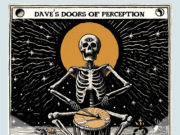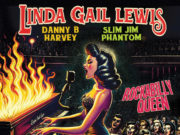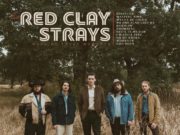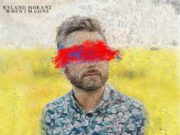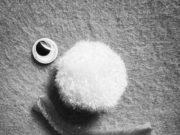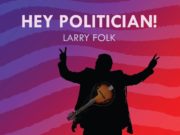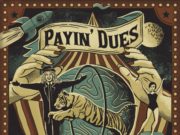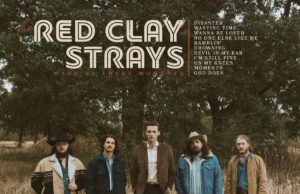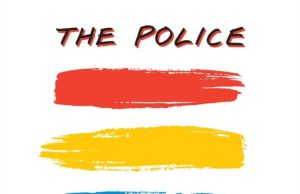 My recent column about Led Zeppelin concerts sent me on a side quest about drum solos, specifically Moby Dick.
My recent column about Led Zeppelin concerts sent me on a side quest about drum solos, specifically Moby Dick.
Now there’s a thing you don’t hear on albums much anymore — songs which are basically just drum solos. A drum solo with a name, like Moby Dick. If you just bought the new Zeppelin album in 1969 and looked at the track list, there’s nothing to suggest Moby Dick is anything apart from another song by the band — it’s even written by Bonham, Jones and Page. It starts off like a regular song until exactly one minute in, and then you realize it’s a drum solo — bookended with a catchy riff.
This was an established formula for drum-solo songs in jazz, and became a thing for the 1960s/’70s rock bands. The studio drum-solo song template is riff intro/drum solo/riff outro. I’m gonna go through some of the ones in my collection, but I have some boundaries. First, they should be studio recordings, and if not, they at least have to have a name. I’m not accepting anything called “drum solo” or Drums by The Grateful Dead. Or, 100,000 Years by KISS because there isn’t a drum solo in the studio recording.
I also don’t accept songs with a drum solo if the drum solo isn’t the main part of the song. Some examples of this include Won’t Get Fooled Again by The Who, Keep Yourself Alive by Queen, The End by The Beatles, Black Betty by Ram Jam, Jump Into The Fire by Harry Nilsson or In-A-Gadda-Da-Vida by Iron Butterfly.
So, let’s get at it. We already have Moby Dick, so we’ll also quickly add Bonzo’s Montreux. I’m on the fence about it a little — it has a name, and it is a studio recording, but it doesn’t have the riffy intro/extro. Ah well, I’ll allow it.
Moby Dick was recorded over a series of sessions in 1969, mostly jams and rehearsals by John Bonham. Jimmy Page took bits of different, longer solos and edited them together into the finished 4:25 track. The guitar riff added by Page and John Paul Jones is from an earlier unused song called The Girl I Love Got Long Black Wavy Hair. You can hear it on the 1997 album BBC Sessions:
Bonzo’s Montreux is named after the drummer’s nickname, combined with the location in which it was recorded in Sept. 1976. Thanks to Page’s electronic treatments, Bonzo’s Montreux is something of a drum orchestra piece rather than just a solo.
We also have to include Ginger Baker’s drum showcase Toad, from the trio’s debut album Fresh Cream. Really, Toad was the first mainstream rock drum solo on an album. This is the one which began the very trend I’m exploring today. It’s one of two instrumentals on the debut Cream album, the other being a cover of Doc Ross’s Cat’s Squirrel. If you listen to the stereo version, or the one on Spotify, you’ll notice the mix is stupid. The guitars are mixed left and the drums to the right. But the bulk of the song is a drum solo, meaning it’s almost all exclusively in the right side only. I have the original Canadian mono pressing of the record, which is much better.
Baker performed the song often in ensuing years. There’s quite a long, live version on Cream’s Wheels Of Fire album. His outfit Ginger Baker’s Air Force also performed it live and even re-recorded it for their second album as Toady.
People often consider Deep Purple’s The Mule a drum-solo song, in this case highlighting the incredible Ian Paice. The original studio version on 1971’s Fireball has a great drum track, but no solo at all. I will, however, include it because of the legendary performance on Made In Japan from 1972.
I wish I could include the great April Wine drummer Jerry Mercer’s solo Good Vibes, but alas, no studio version was ever done and the live version has no riff intro/outro. Same with Rush’s O Baterista, a showcase for the inimitable, late Neil Peart.
But I’ll budge a bit when it comes to Ric Lee, the drummer for Ten Years After. Oh my goodness, their live stuff. Wow — especially their second album Undead, which I previously reviewed HERE. I will include Lee’s solo The Hobbit because even though it’s not a studio recording, it clearly was worked out in one. It has a musical intro and extro. You can hear it on their 1973 album Recorded Live.
Hot on the heels of Moby Dick from 1969’s Led Zeppelin II came Rat Salad on Black Sabbath’s second album, 1970’s Paranoid. It follows exactly the same pattern as Toad and Moby Dick, except a bit shorter — just two-and-a-half minutes, of which only about a minute is solo drums. It still counts. Bill Ward is awesome. Did you know Van Halen were nearly called Rat Salad in honour of this track?
Sadly I can’t find any studio drum solo features of Karen Carpenter. The late vocalist of The Carpenters was an unbelievably talented drummer. Behold her at just 18 years old:
Anyway, back to our collection. We’ll go with a more modern one now, because there aren’t as many of those these days. Tool drummer Danny Carey does lots of solos, but the band also include them on their albums — like the controversially titled Chocolate Chip Trip on 2019’s Fear Inoculum. I say “controversial” because it was a little too cute for some fans who prefer titles like Hooker With A Penis, Prison Sex and Stink Fist.
A couple more classics for you now, starting with Dharma For One from the first Jethro Tull album, 1968’s bluesy This Was. It’s the only Tull album which sounds like this, and that’s probably why it was called This Was. The reason was the presence of original guitarist Mick Abrahams, who they replaced with Tony Iommi. This was when Iommi was still in a blues band with Ozzy Osbourne, Bill Ward and Geezer Butler called Earth. He didn’t stay long — just long enough to appear in The Rolling Stones’ Rock & Roll Circus special, miming Abrahams’ parts (on a Stratocaster instead of an SG!). He went back to Earth and they became Black Sabbath, while Tull picked up lead guitarist Martin Barre.
I digress. Dharma For One was a popular concert staple showcasing the drum talents of Clive Bunker. The band decided to record it to grace the opening of Side 2 of their debut.
Finally, the other classic is Carl Palmer’s Tank from Emerson, Lake & Palmer’s self-titled 1970 debut. The song is kind of a showpiece for all involved, but the only one on the record with a drum solo. The drum bit is the best part, as I’ve never really been a fan of Keith Emerson’s wild noodling — here on Clavinet for goodness sake, and later on Moog.
Is there one I’m forgetting? There must be.
• • •
Area Resident is an Ottawa-based journalist, recording artist, music collector and re-seller. Hear (and buy) his music on Bandcamp, email him HERE, follow him on Instagram and check him out on Discogs.


